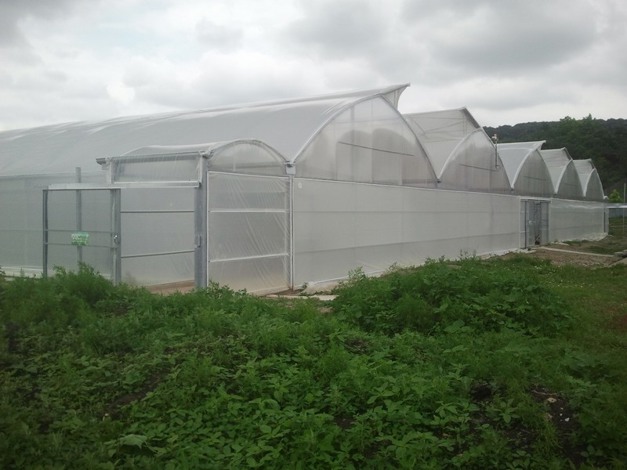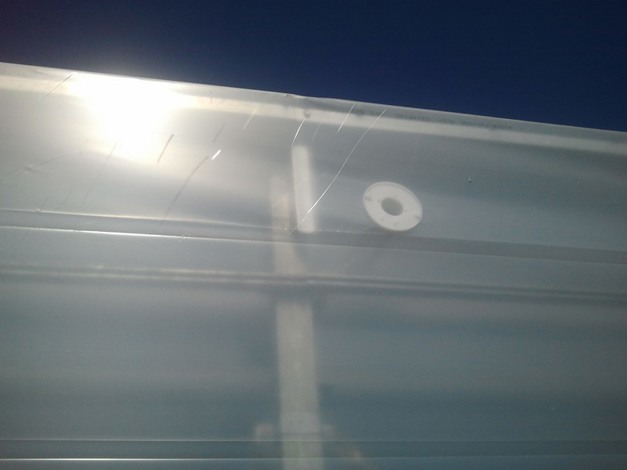In the world of protected horticulture, choosing the right material for greenhouse coating plays a key role in the success of crops. In this article, J. Huete will focus on the advantages of using double plastic coating in greenhouses and how this solution, implemented by J. Huete Greenhouses worldwide, goes beyond being just a lining. "We will explore its ability to provide increased thermal insulation, optimal light control, and exceptional resistance to adverse weather conditions, thus enhancing crop performance and quality."
Advantages
One of the standout features of double plastic coating in greenhouses is its capacity to provide increased thermal insulation. The double wall acts as a barrier that helps retain heat within the greenhouse, creating a favorable environment for plant growth. This is especially beneficial in regions with extreme climates, where temperatures can be extremely cold during the winter. The double-layer plastic reduces heat losses, allowing for a stable temperature and protecting crops from low temperatures, promoting their healthy development.
In addition to thermal insulation, the double plastic coating also provides optimal light control. The double coating acts as a filter to regulate the quantity and quality of light reaching the plants. This is especially important for crops that require specific amounts of light for proper growth and development. By adjusting the amount of sunlight entering the greenhouse, photosynthesis can be optimized, and crop quality can be improved, resulting in higher yields and superior products, J. Huete explains.
"Exceptional resistance"
Another key advantage of double-skin plastic in greenhouses is its exceptional resistance to adverse weather conditions. The double-layer design provides greater resistance to wind, rain, snow, and other weather phenomena. This protects both the coating material and the greenhouse structure, ensuring greater durability and reducing long-term maintenance costs. Additionally, the UV resistance of double-layer plastic helps prevent premature aging of the material and ensures a longer lifespan.
Harnessing the benefits
By incorporating double plastic walls in greenhouses, farmers can reap significant benefits. The increased thermal insulation translates to reduced reliance on heating and cooling systems, leading to energy and operating cost savings. Precise light control optimizes crop growth and increases yields. Moreover, the resistance of double-layer plastic to adverse weather conditions provides peace of mind to farmers, safeguarding their investments and ensuring continuous production even in challenging weather situations.
"At J. Huete Greenhouses, we understand the importance of selecting the right coating material for greenhouses. That's why we offer top-quality double-plastic coating solutions designed to deliver the aforementioned benefits to our clients. Our commitment lies in providing state-of-the-art products that help farmers maximize productivity and achieve crop success," the team says.
In conclusion, J. Huete explains that the use of double plastic coating in greenhouses offers a range of advantages that go beyond being a mere lining. Its ability to enhance thermal insulation, effectively control light, and withstand adverse weather conditions results in higher yields and improved crop quality. "If you seek to maximize production and secure the success of your crops, consider double plastic coating as a reliable and effective option."
For more information:
J. Huete International
[email protected]
www.jhuete.com
